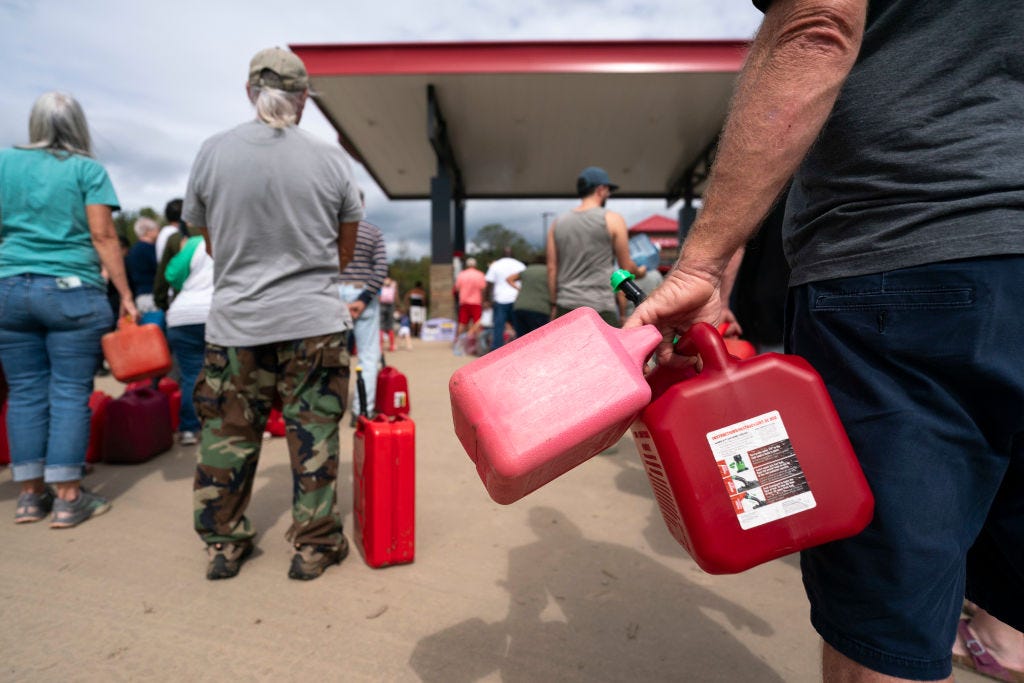BlackRock tells CEOs to prepare for a zero-emissions economy
Larry Fink is telling companies to prepare for a zero-emissions world. The CEO of BlackRock, the world's largest asset manager, told CEOs at its portfolio companies to outline their plans for getting to net-zero carbon emissions by 2050 and to show that their board of directors has reviewed the plans.
"There is no company whose business model won't be profoundly affected by the transition to a net zero economy – one that emits no more carbon dioxide than it removes from the atmosphere by 2050, the scientifically-established threshold necessary to keep global warming well below 2ºC," Fink wrote in his annual letter to CEOs on Tuesday.
BlackRock last year made waves when it said it would put environmental sustainability at the center of its investment strategy, including divesting from fossil-fuel producers. The move by Blackrock, with a portfolio over $7 trillion, effectively pressures other finance firms to increase their own climate commitments, according to environmental advocates.
"The signal is becoming undeniable to the boardroom that mainstream finance truly regards climate risk as financial risk, and it is their business to create and disclose credible transition plans," said Ben Ratner, senior director of EDF+Business, a partnership between the Environmental Defense Fund and businesses pledging to decarbonize.
Hundreds of companies and dozens of nations have pledged to zero-out their carbon emissions by midcentury. Few, if any, have achieved that goal. Alphabet's Google unit, for instance, announced in September that it has eliminated its entire contribution to climate change via carbon offsets — a technique in which companies pay for carbon-reducing projects, such as planting trees or capturing gas leaks, to help counter the greenhouse gases they themselves emit.
Ratner said that BlackRock's call for specific plans could prod companies into revealing details that they have so far avoided disclosing.
"Even as there's been a positive tidal wave of net-zero pledges … in many cases the details are not yet there on plans to achieve that," he said.
It's hard for lay people to distinguish between a company that is truly reducing its emissions and one that simply has good marketing, Ratner added. "The [sustainable] investment landscape is a bit of a wild west today," he said.
BlackRock itself has been called out: The firm still owns $85 billion worth of coal-producing stock, thanks to a loophole in its climate pledge, the Guardian recently reported. It has also been blamed for fueling deforestation in the Amazon through its investments in companies that conduct business in Brazil's most endangered natural resource.
Meanwhile, activists have embraced divestment as a way to thwart environmentally destructive projects, with 350.org founder Bill McKibben famously writing that "money is the oxygen on which the fire of global warming burns." Universities and public pension funds have followed suit, with two New York City public pension funds this week moving to pull out of fossil-fuel investments.
No less a power than the Federal Reserve has acknowledged the dangers of climate change, last year designating it as a systemic risk and joining a network of global regulators dedicated to research and policy response.
Continuing the drop
U.S. carbon emissions fell an unprecedented 10% last year, the largest such drop since World War II, reflecting a highly unusual spring when industry and transit ground to a halt under stay-at-home orders nationwide. Staving off the worst effects of climate change, which has contributed to hundreds of thousands of deaths and caused billions of dollars' worth of damage, would require cutting emissions by roughly that dramatic amount every year until 2050 — while avoiding the negative economic and social impacts of lockdowns.
For BlackRock's Fink, the response to the coronavirus pandemic creates a possible model for climate action.
The "pandemic has presented such an existential crisis – such a stark reminder of our fragility – that it has driven us to confront the global threat of climate change more forcefully and to consider how, like the pandemic, it will alter our lives," Fink wrote. "It has reminded us how the biggest crises, whether medical or environmental, demand a global and ambitious response."
In other words: Decisive action from governments is needed. Many nations, especially in Europe, have pledged to meet the challenge by tying economic-recovery funds to environmental measures, while activists in the U.S. are pushing the newly inaugurated Biden administration will move aggressively on climate.
"It's a fantasy to think that even Wall Street can help create decarbonization on its own," said Ratner. "Climate change is such a big problem it requires governments and corporations and communities all rowing together."



